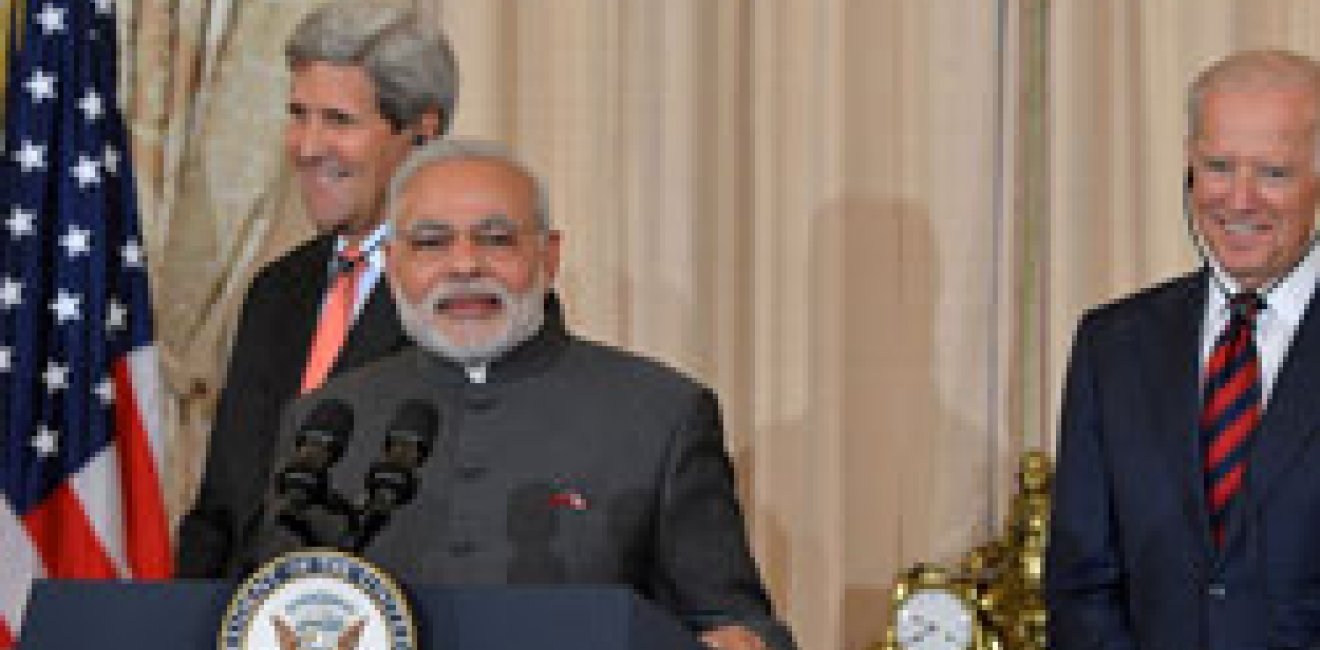A few months ago, Narendra Modi was persona non grata in the United States–banned because of allegations that he failed to stop deadly anti-Muslim riots in the Indian state of Gujarat, where he was chief minister, in 2002.
Fast-forward to the past few days. Mr. Modi, now prime minister of India, has regaled large and adoring crowds in New York and hobnobbed with high-level officials, including President Barack Obama, in Washington.
For years, Mr. Modi couldn’t get a U.S. visa. Now he’s landing concert gigs in Central Park that put him on the same stage as Beyonce and Jay-Z.
What gives?
The basic answer is that once Mr. Modi became prime minister, the visa ban was lifted. Power begets certain privileges.
Still: Why the large public events at Madison Square Garden and in Central Park? And why has Modi fever swept across New York and Washington?
The public spectacles reflect Mr. Modi’s wish to showcase himself, and India, to a U.S. public that knows little about him and has stereotyped views of India. Above all, they are meant to engage America’s 3.2-million-strong Indian diaspora. Many of its members were electrified by Mr. Modi’s election victory and see him as a decisive, can-do leader capable of bringing India out of its economic doldrums.
As for Modi mania, it’s actually a bit of a myth. Many Americans have no idea who Mr. Modi is. Those enthusiastically greeting the prime minister have mainly been members of the diaspora (he was also greeted by small groups of protesters, which the Indian media, despite its minute-by-minute reporting on Mr. Modi’s every move, have offered relatively little coverage). Others rolling out the red carpet are U.S. corporate and government officials. Adoring masses they are not.
There is something distinctly American about Mr. Modi. His rise from a tea-seller’s son to high office through hard work and a strong embrace of the free market is reminiscent of a Horatio Alger rags-to-riches tale.
Nevertheless, Mr. Modi’s rock-star treatment comes from a few U.S. constituencies–not from the country as a whole. Yet his visit is still a boon for U.S.-India relations. The fact that he’s here indicates his desire to put the visa ban behind him and to push personal grudges aside to get the bilateral relationship–which has sputtered in recent years–back on track.
Additionally, Mr. Modi’s courtship of the Indian diaspora and U.S. business is freighted with positive implications for bilateral ties. Arguably, it is these groups–not the U.S. government–that will most determine how much the relationship can grow. The Indian-American diaspora is a bridge between the two countries and boasts a strong lobbying presence on Capitol Hill. Meanwhile, the U.S. private sector trades with India and invests generously there, despite U.S. business leaders’ complaints that high Indian tariffs and red tape constrain deeper economic relations.
Ultimately, the most important moment of Mr. Modi’s trip came during his speech at Madison Square Garden, when he announced new visa policies that would facilitate Americans’ ability to visit India. Sound bilateral relations require uninhibited flows of not only goods and capital but also people. This announcement marks a significant step in that direction.
For a visit long on pageantry and short on substance, this pledge counts for something–more than the celebrities and bigwigs with whom Mr. Modi has rubbed shoulders and shared stages.
The opinions expressed here are solely those of the author.
This article was originally published on The Wall Street Journal's Washington Wire.






